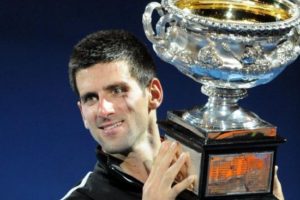This year’s Wimbledon final was fought out between two players, both of whom have a former superstar player as their coach. It seems obvious to think any individual who has reached the pinnacle of their sport, like Lendl, must understand it to great depth. This may well be true in certain cases. But there are clear examples that contradict this. I will use Tennis and Football as two examples to make a case for why “super-coaches” can both succeed and fail. The premier leagues most successful clubs mostly have managers who were average players, think Sir Alex Ferguson, Arsene Wenger, Jose Mourinho. The exception being Guardiola. Yet in tennis it is true that the best players seem to have former stars as coaches, Becker, McEnroe, Lendl.
So why do some “super-coaches” work? Take tennis as the first example, the great players of now have often picked these “super-coaches” when already at a very high standard. Andy Murray had been to grand slam finals before aligning with Lendl. They seek out the coaches to find something extra, a marginal gain you might say. In order to have won grand slam tennis tournaments there is great individual pressure and in match adaptation required. The tennis great is more reliant on only themselves than a football team is in order to succeed. The former great tennis player will have faced problems similar to those of the current player and learnt how to overcome them. This is likely to have ensured the tennis players who make it to the top are capable of the self reflection and in match adaptation required to win. Knowledge of the moments and what is feels like to compete in those environments could be a great asset when the ex-tennis player and current player are trying to find improvements. As the individual player improves their knowledge of the game and themselves are likely to improve. They are capable of self analysis and effectively coaching themselves. They will no longer need dictatorial input. The “super-coach” can be there to discuss ideas with, self affirm or challenge their own beliefs. Having someone who has been in the same situation and to the same level will enable them to gain even more insight to improve their own performance. The human brain will find ways of reacting to certain situations, often looking first to what it has experienced previously. It is incredibly smart in that it can assimilate the experience of others into this decision making. Using your own experience as well as that of your “super-coach” can possibly find that extra dimension.
Football differs from tennis in some critical aspects. Therefore the coaching demands will also differ in critical aspects. The team nature of football ensures a greater ability in tactical assessment and organisation are required, the coach also needs to be able to spot qualities for both purchasing players and subjectively selecting teams that will blend. Along with this the football coach’s personality needs to be compatible with a far wider array of individuals. The tennis coach has one brief- to improve the quality of the individual they are responsible for. Being a former great player will make the tennis brief much more akin to what the coach went through in their own career. The football manager will need a whole new and different skill set.
The tennis player turned “super-coach” will have spent much of their own life improving their skills, physiology and learning from a vast experience of match situations. The footballer much the same, but both would have focused a great deal on just their own skills and physiology. The footballer may pass through their career without assuming great knowledge of defensive or tactical set up, how to communicate with other players, motivate them, even form positive team relationships. They may stay in the team through their personal ability and performance primarily. They may allow their own coaches to be responsible for tactics and team management, silently getting on with doing the job. As such these footballers may then end their career as a player and move into coaching with very few of the skills mentioned above. The tennis coach doesn’t need the same skills.
It would be wrong to assume, however that a tennis great, like the former outstanding footballer may make a good candidate for a coach as both sports have a high physiological aspect to performance. The individuals physical capabilities go a long way to determining their success. It has been shown that the number of high intensity sprints occurring in a premier league game has increased over 50% in the last 10 years. If Sir Alex Ferguson just didn’t have the speed or endurance to keep up when he played he would never be an outstanding player. Likewise some of today’s best players, in both tennis and football, may owe a large part to their physical prowess. To make the simple assumption that they were a great player and therefore understand the game would be folly.
Coaching is a different job to playing, in some sports the gap is more distinct, in some less. The “super-coach” lends itself very well to tennis, less so to football. But clearly there will be spectrum of suitability across all sports, within sports and different individuals. Simple associations will in this, as many decisions, make for patchy success.




